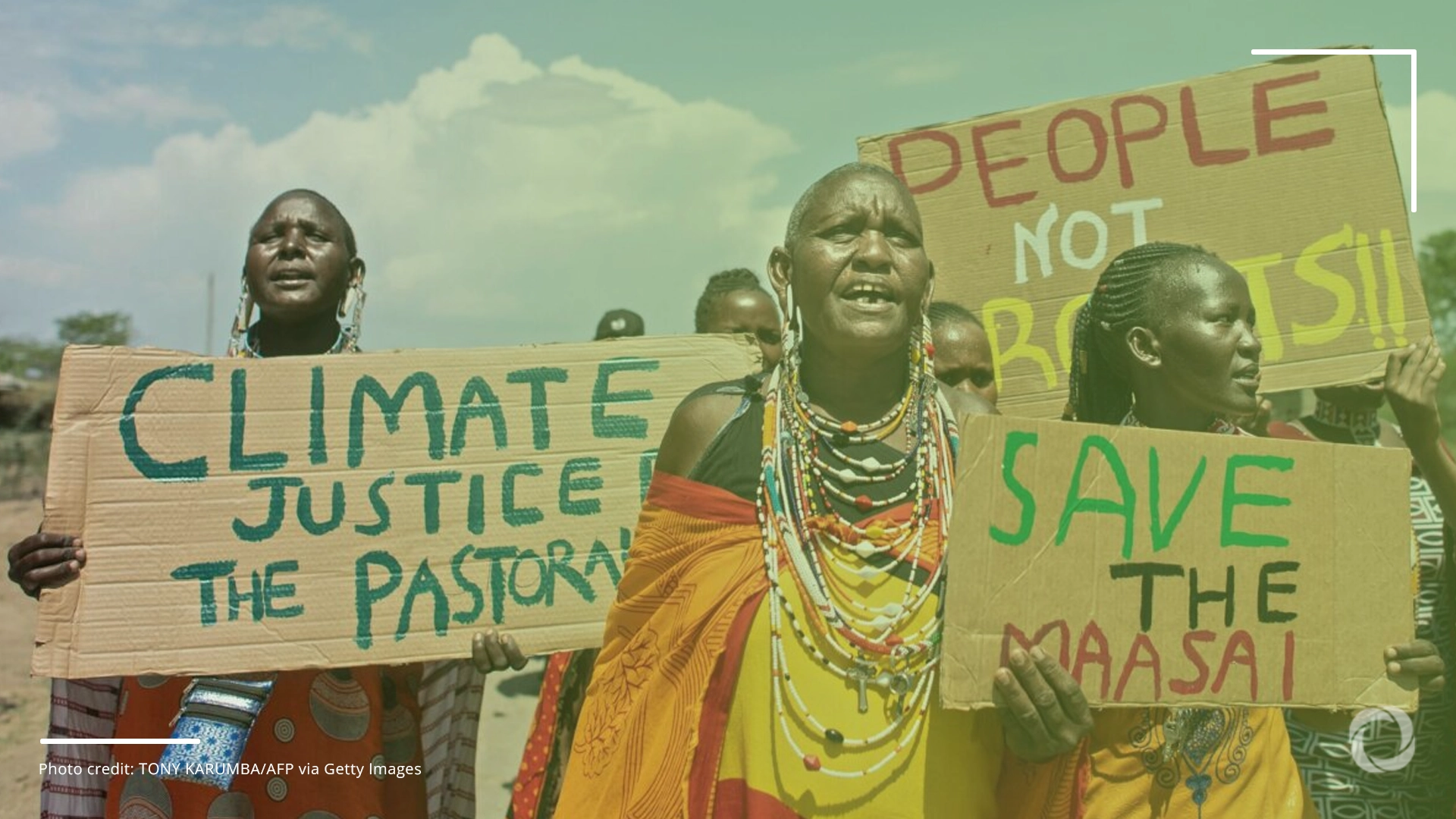5 reasons to read this story:
- Historic win: Kenya halts the world’s biggest soil carbon project
- Litigation boom: 3,099 climate cases are shaking global policy
- Communities’ resistance: Indigenous groups fight forced displacement
- Global pressure works: EU steps in as national justice fails
- Carbon’s hidden cost: Can climate ‘solutions’ threaten land and human rights?
Land in exchange for carbon money
Earlier this year, a Kenyan court delivered a landmark ruling in favor of residents of Isiolo County by blocking the Northern Rangelands Trust (NRT) from launching a soil carbon offset project spanning across 19,000 square kilometers, an area about the size of Wales in the UK. The court ruled that NRT had violated the constitutional requirements for public consultations and prohibited them from mapping, surveying, entering, or recruiting in the targeted county wards.
The Northern Kenya Rangelands Carbon Project had been described as the world’s largest soil carbon offset project, and had promised to “remove” 50 million tons of CO2 over 30 years, which is comparable to the yearly emissions of over 10 million cars. It also pledged to channel hundreds of millions of dollars to the local communities.
“Unfortunately, this NRT disaster is far from an isolated problem. Too many of these carbon offset schemes follow the same outdated model as traditional ‘fortress’ conservation – claiming to ‘protect’ land while trampling over the rights of the indigenous owners of it and making handsome profits in the process,” Caroline Pearce the Executive Director of Survival International, a human rights NGO, told Deutsche Welle News.
From local lawsuits to a global wave
According to the UNEP Global Climate Litigation Report 2025, the Kenyan court ruling is part of a rapidly growing global trend:
- 3,099 climate lawsuits had been filed by June 2025, up from just 800 cases filed between 1986 and 2014.
- 55 jurisdictions and 24 regional and international courts, semi-judicial bodies, tribunals, and adjudicative bodies now handle climate lawsuits.
- The subjects of the lawsuits include greenwashing, environmental degradation, carbon offsets, and energy-intensive data centers.
Source: UNEP Global Climate Litigation Report 2025
For Africa, these cases go beyond abstract law. For the petitioners in Isiolo who are indigenous pastoralists, losing access to grazing lands could mean the loss of their only source of livelihood. The court recognized that the project risked undermining survival itself.
Tanzania: displacement in the name of conservation
In northern Tanzania, indigenous pastoralists are being evicted to make way for conservation projects. Since 2022, Maasai communities have faced violent displacement so that land can be cleared for soil-carbon projects.
Activists from the Maasai International Solidarity Alliance (MISA) have accused Volkswagen, the company implementing one project, of “climate colonialism”, which they explained as the use of green finance to mask dispossession. Volkswagen responded, stating that it takes “allegations seriously” and added that the Maasai still “retain full control of their land”.
However, Amnesty International has reported that 70,000 Maasai were forcibly evicted in 2022 alone, whereas the UN has warned of “escalating violence” linked to these evictions.
Global pressure as a countermeasure to limited local justice
With the Tanzanian government failing to condone the evictions, local justice was out of reach, and communities like the Maasai are being forced to rely on international bodies.
- In December 2023, the European Parliament passed an emergency resolution condemning the evictions and urging Tanzania’s government to guarantee the safe return of the victims as well as access to justice for them.
- In June 2024, the European Union halted the funding of conservation projects in Tanzania from the €18 million grant that had been allocated for East Africa.
- Under pressure, on December 1, 2024, Tanzania’s President Samia Suluhu formed two committees to review complaints and relocations, with some having moved families over 600 kilometers away from their ancestral lands.
Global legal shifts
The UNEP report notes that courts are increasingly becoming tools for climate governance. The International Court of Justice (ICJ) and the Inter-American Court recently issued rulings affirming the duty of states to act on climate as a human rights obligation.
A telling precedent was registered in 2021 when the ICJ appeal court ordered Royal Dutch Shell to pay €15 million to Nigerian farmers to compensate for oil spill damage between 2004 and 2007 that caused illnesses, death, and environmental destruction. The complaint was filed by Friends of the Earth Netherlands and four Nigerian farmers. This was the first time that an international court granted compensation for the harm done by a multinational company in a developing country.
A challenge of a changing era
The Isiolo decision, the Maasai resistance, and the Shell precedent underscore a growing tension between climate policies and carbon markets on the one hand, and the rights of local communities on the other. As these projects expand, questions remain as to what ‘solutions’ should be put in place to effectively reduce emissions while respecting the rights and livelihoods of the people who live on the land they affect.

